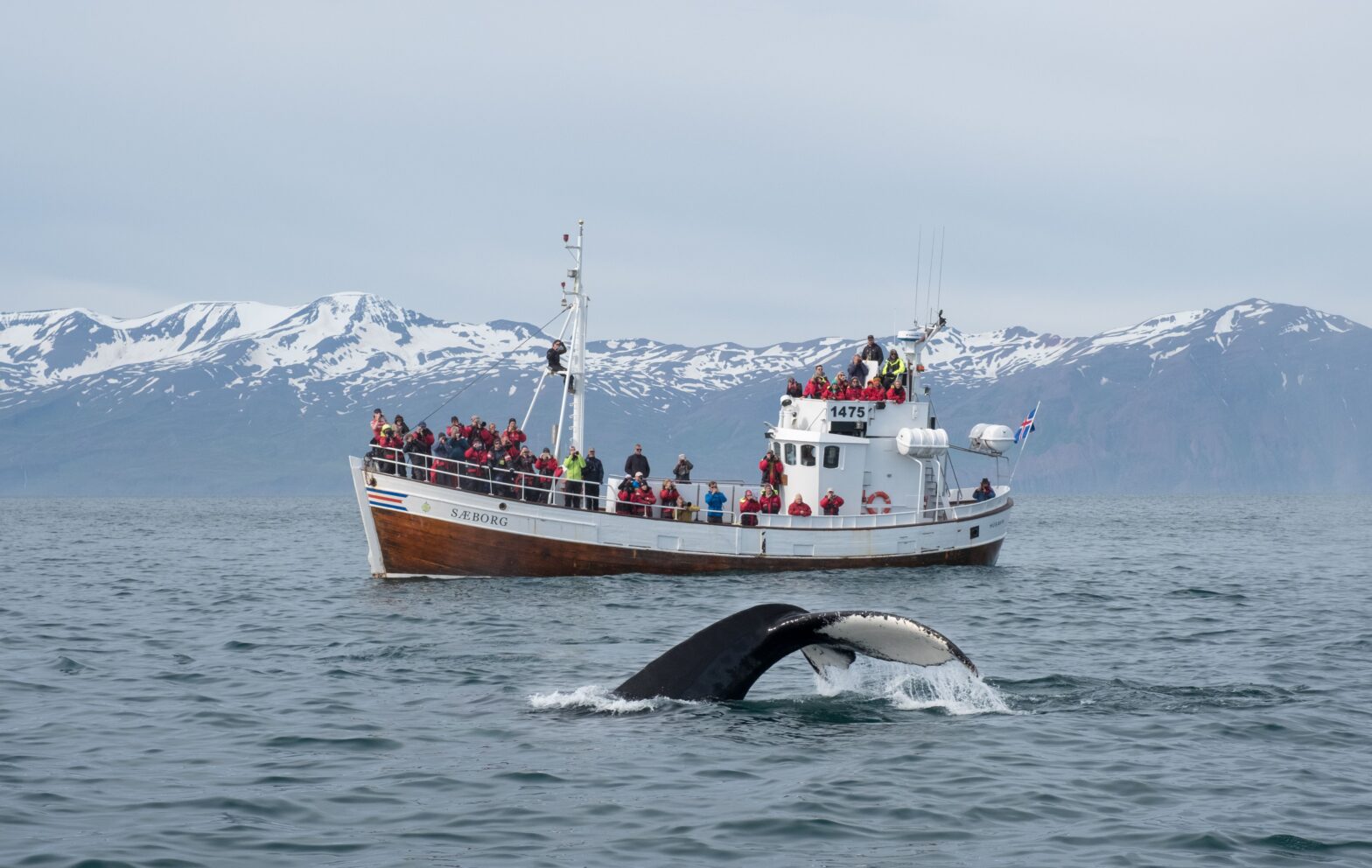Tips for whale and dolphin tourism
The moment when whales or dolphins emerge from the depths of the ocean is unforgettable. And encounters between humans and marine mammals in the wild may also bear a promising element for the animals. Whale watching can replace visits to dolphinaria and in whaling countries it is a strong economic argument against killing these animals.
However, careless behaviour is also a danger in this field. Time and again whales and dolphins are disturbed or even hurt by boats. Our request: Please comply with the rules below, if you are steering a boat.
If you go on a trip with a whale watching operator, please watch their behaviour around the animals and notify us of breaches of the rules. A form is available for download. OceanCare will contact the operator and point out the potential for improvement.
Code of conduct for encounters with whales and dolphins
Whale and dolphin watching requires patience, watchful eyes and a respectful approach. Take your time and enjoy the moments of waiting. With or without sightings, already your stay in the cetaceans’ habitat is impressive. If you are lucky and the animals surface nearby, please observe the rules below, alongside local regulations:
- Leave it to the animals to shape the encounter. Don’t try to provoke reactions.
- Approach whales and dolphins only laterally from behind so that you are in their field of view. Avoid approaching them head-on or directly from behind. Adjust your speed to that of the slowest animal.
- Keep a distance of at least 100 metres to the animals. In a 100 to 300 metre radius around the animals, there should only be one boat, which should leave the zone after a maximum of 15 minutes.
- Increase the distance if calves are present or when the animals get restless.
- If whales or dolphins approach the boat closer than 100 metres, disengage the engine. Make sure that all animals are at least 100 metres from the boat, before re-engaging the engine and leaving slowly.
- Keep the direction of movement of the whales and dolphins in mind and do not cross their path. Under no circumstances should the animals be pursued or encircled. Never drive a vessel into a group.
- Avoid sudden changes in speed or direction, if marine mammals are near. Constant movement is particularly important when dolphins surf in the bow wave.
- Don’t feed whales and dolphins.
Swimming with dolphins?
Many people would like to have close contact in particular with dolphins. And there are a lot of operators offering such experience. But swimming with dolphins is problematic because it usually happens in areas where the dolphins wish to rest, find food, mate or raise their young. People swimming can disturb the animals. Accordingly, swimming with dolphins has been banned or severely restricted in many areas. Swimming with captive dolphins is no alternative. Most animals in dolphinaria have been brutally taken from the wild, a practice that jeopardizes entire dolphin populations.
